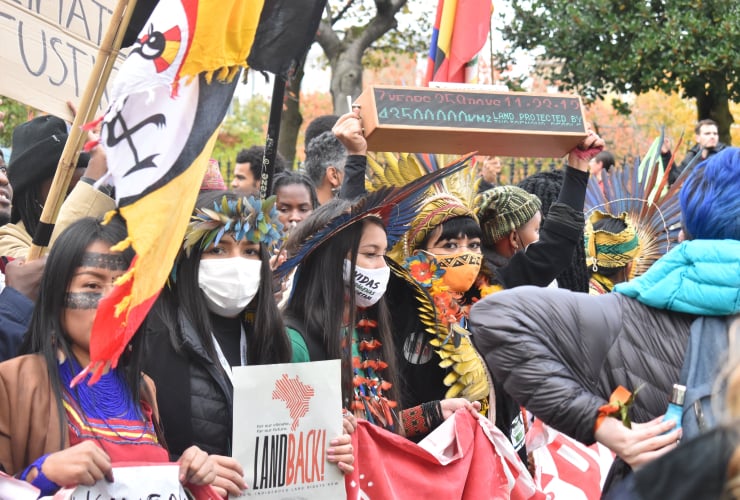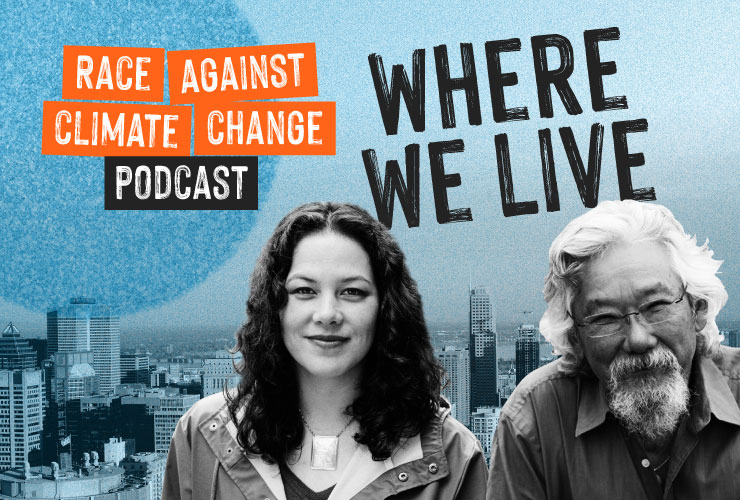Canada was among 19 countries promising to eliminate greenhouse-gas emissions from some international shipping routes at the COP26 climate talks in Scotland Wednesday.
Transport Minister Omar Alghabra also signed Canada on to a zero-emission car accord, a memo stating that emissions need to be cut from international air travel, and a pledge to make heavy trucks and buses emission-free in less than two decades.
They are the latest in a long list of new climate promises Canada is making during the critical negotiations, from targeted funds for coral reefs and a promise to halt deforestation to ending international financing for fossil-fuel projects by the end of next year.
Critics say almost all of them have a common theme: they're mostly talk and not a lot of actual work.
"COP26 has been all about the headline announcements and not as much about the accountability and the tracking and measuring and verification of action on those announcements," said Catherine Abreu, a member of Canada's net-zero advisory body and the executive director of Destination Zero.
COP stands for Conference of the Parties to the United Nations Framework Convention on Climate Change, which was formed almost three decades ago in a bid to address the threat of climate change.
The countries that signed the convention — now standing at 197 — meet annually, alongside advocates and lobbyists, to negotiate how they can co-operate, in an event that combines a world's fair-like atmosphere with political posturing and a sea of protests.
It was at the third COP meeting in 1997 that the Kyoto treaty came to be, and at the 15th in 2009 that the followup Copenhagen accord was signed. But it was in Paris in 2015 that the biggest and most comprehensive global agreement on climate was inked.
The Paris agreement commits COP countries to reducing greenhouse gas emissions so global warming does not go above 2 C by the end of the century, with an aim to keep it as close to 1.5 C as possible.
Every COP since Paris has been about figuring out the rules for how to follow through on that plan, including who has to do what by when, and how it has to be reported. This COP26 meeting in Glasgow is seen as critical to "keeping 1.5 alive."
The International Energy Agency said last week if everything promised in Glasgow gets implemented global warming should be around 1.8 C by 2100, but Climate Action Tracker suggested it might be as high as 2.4 C.
Every 0.1 C increase in the average global temperature can bring with it new waves of trouble for the planet, with more heat waves, longer droughts, heavier rains, and more difficulty getting fresh water or growing food. After 2 C the effects of climate change start to become exponential and potentially irreversible.
Abreu said Canada has made some good movements before and during the Glasgow talks, including joining the pledge to eliminate subsidies for foreign fossil fuel projects by the end of 2022, and leading the way on cutting methane emissions from oil and gas production 75 per cent by the end of 2030.
But Abreu said a lot of what's happened in Glasgow is side pledges and alliances with limited accountability, while the draft text of the agreement expected to be signed by Friday shows little evidence governments are signing off on doing anything specific.
"Right now we have a draft that is pretty heavy on talking about the importance of 1.5 (C) and increasing ambition, but it's all language like 'welcomes,' 'acknowledges,' and 'considers," she said. "It doesn't use the language of 'decides that governments will do XYZ.'"
Even many of the side agreements Canada did join are vague, including what was dubbed the Clydebank Declaration to create at least six emission-free shipping routes between ports of the 19 participating countries by the middle of this decade.
International shipping produces about three per cent of total global carbon emissions.
Andrew Dumbrille, the lead specialist on marine shipping and conservation at World Wildlife Fund Canada, said creating some green shipping corridors is a great start but noted Canada hasn't said anything about which port will be affected or how.
This report by The Canadian Press was first published Nov. 10, 2021.





Comments